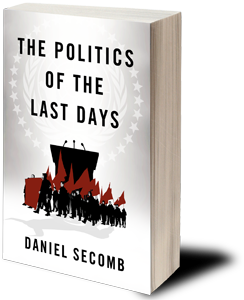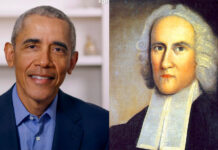Rep. Steve Cohen (D-TN) introduced two bills on Thursday, one to eliminate the electoral college and the other to prohibit presidents from pardoning themselves or their family members.
A press release from Cohen’s office stated that the “senior member of the House Judiciary Committee, introduced two Constitutional Amendments today on the opening day of the new Congress. The first would eliminate the Electoral College and provide for the direct election of the President and Vice President of the United States. The second would limit the presidential pardon power by prohibiting presidents from pardoning themselves, members of their families, members of their administrations and their campaign staff.”
“In two presidential elections since 2000, including the most recent one in which Hillary Clinton won 2.8 million more votes than her opponent, the winner of the popular vote did not win the election because of the distorting effect of the outdated Electoral College,” Cohen said. “Americans expect and deserve the winner of the popular vote to win office. More than a century ago, we amended our Constitution to provide for the direct election of U.S. Senators. It is past time to directly elect our President and Vice President.”
“Presidents should not pardon themselves, their families, their administration or campaign staff,” Cohen continued. “This constitutional amendment would expressly prohibit this and any future president, from abusing the pardon power.”
Cohen wasn’t the only Democrat that took action aimed at President Donald Trump on Thursday, as Rep. Brad Sherman (D-CA) introduced “articles of impeachment against President Donald Trump, filing them as his first order of business in the new, Democrat-controlled House of Representatives.”
Democrats have long sought a way around the electoral college, which prevents the U.S. from being controlled by major population centers which are Democrat strongholds.
Legal scholar Tara Ross explained in a PragerU video what the Democrats are trying to do by eliminating the electoral college and implementing a national popular vote and the dangers that their efforts pose to the U.S.
WATCH:
Transcript provided via PragerU:
In every presidential election, only one question matters: which candidate will get the 270 votes needed to win the Electoral College?
Our Founders so deeply feared a tyranny of the majority that they rejected the idea of a direct vote for President. That’s why they created the Electoral College. For more than two centuries it has encouraged coalition building, given a voice to both big and small states, and discouraged voter fraud.
Unfortunately, there is now a well-financed, below-the-radar effort to do away with the Electoral College. It is called National Popular Vote or NPV, and it wants to do exactly what the Founders rejected: award the job of President to the person who gets the most votes nationally.
Even if you agree with this goal, it’s hard to agree with their method. Rather than amend the Constitution, which they have no chance of doing, NPV plans an end run around it.
Here’s what NPV does: it asks states to sign a contract to give their presidential electors to the winner of the national popular vote instead of the winner of the state’s popular vote.
What does that mean in practice? It means that if NPV had been in place in 2004, for example, when George W. Bush won the national vote, California’s electoral votes would have gone to Bush, even though John Kerry won that state by 1.2 million votes!
Can you imagine strongly Democratic California calmly awarding its electors to a Republican?
Another problem with NPV’s plan is that it robs states of their sovereignty. A key benefit of the Electoral College system is that it decentralizes control over the election. Currently, a presidential election is really 51 separate elections: one in each state and one in D.C.
These 51 separate processes exist, side-by-side, in harmony. They do not — and cannot — interfere with each other.
California’s election code applies only to California and determines that state’s electors. So a vote cast in Texas can never change the identity of a California elector.
NPV would disrupt this careful balance. It would force all voters into one national election pool. Thus, a vote cast in Texas will always affect the outcome in California. And the existence of a different election code in Texas always has the potential to unfairly affect a voter in California.
Why?
Because state election codes can differ drastically. States have different rules about early voting, registering to vote, and qualifying for the ballot. They have different policies regarding felon voting. They have different triggers for recounts.
Each and every one of these differences is an opportunity for someone, somewhere to file a lawsuit claiming unfair treatment.
Why should a voter in New York get more or less time to early vote than a voter in Florida? Why should a hanging chad count in Florida, but not in Ohio? The list of possible complaints is endless.
And think of the opportunities for voter fraud if NPV is passed! Currently, an attempt to steal a presidential election requires phony ballots to appear or real ballots to disappear in the right state or combination of states, something that is very hard to anticipate. But with NPV, voter fraud anywhere can change the election results — no need to figure out which states you must swing; just add or subtract the votes you need — or don’t want — wherever you can most easily get away with it.
And finally, if NPV is adopted, and winning is only about getting the most votes, a candidate might concentrate all of his efforts in the biggest cities, or the biggest states. We could see the end of presidential candidates who care about the needs and concerns of people in smaller states or outside of big cities.
Here’s why all of this is of so much concern: NPV is more than halfway to its goal.
NPV’s contract will go into effect when states with a combined 270 electoral votes have signed. To date, NPV already has the support of 10 states plus D.C. Together, that’s 165 electoral votes, leaving only 105 votes to go.
It is time to stop this attempt to undo the way American presidents are elected, which will in turn undo America. The people behind NPV think they are wiser than every generation of Americans that preceded them.
They aren’t.
Source: Daily Wire
 Register your interest for Daniel Secomb's new book, "Politics of the Last Days"
Register your interest for Daniel Secomb's new book, "Politics of the Last Days"
Daniel's new book explores the integral and fascinating role that politics will play in the end times.
He demonstrates that political philosophy is actually underpinned by biblcal principles and that by examining the political history of the past can give us a fascinating glimpse into how Biblical end times events will unfold.
Be sure to sign up with your name and email address to be notified of updates and the upcoming release date of the book.



















